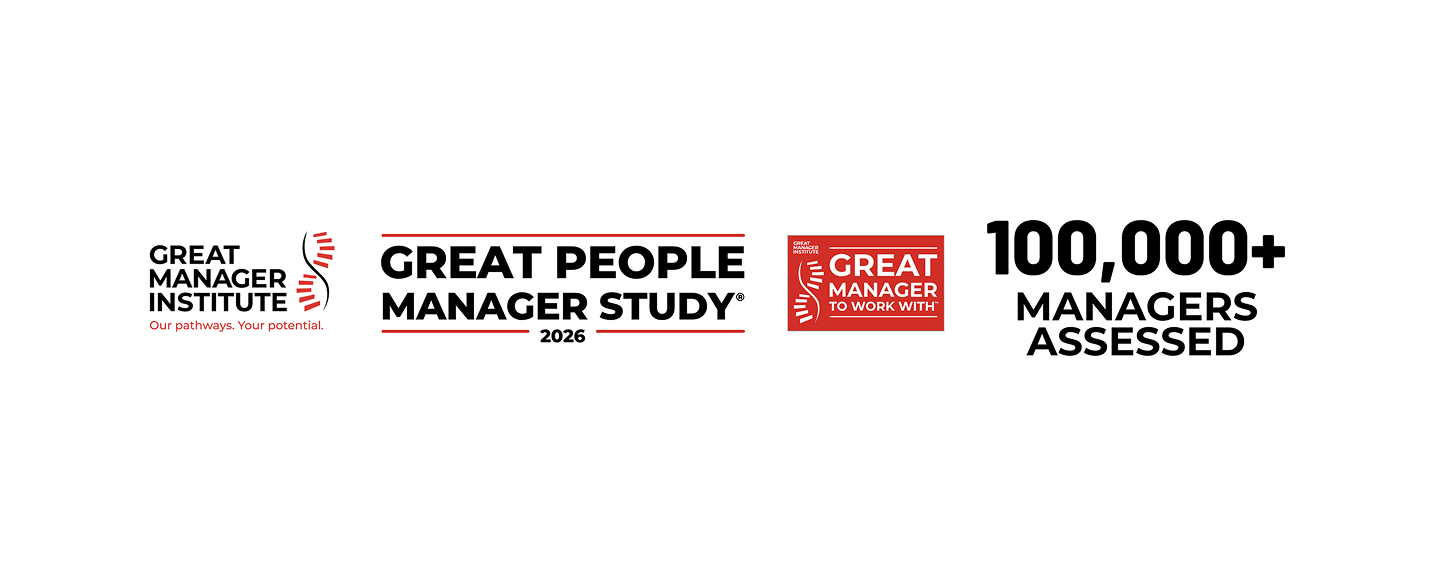What is a people managerial effectiveness survey?
A people managerial effectiveness survey tool is used to assess the performance and effectiveness of managers within an organization. This type of survey focuses on evaluating a manager’s ability to lead, communicate, motivate, and support their team members, among other managerial competencies. It often includes questions related to leadership style, decision-making processes, interpersonal skills, and the manager’s ability to achieve team goals. The feedback obtained from this survey is primarily used to identify areas where managers can improve their skills, enhance their leadership qualities, and better support their teams.
In today’s highly competitive global economy, organizations are realizing the fact that their managers are one of the most important assets; they drive business and generate revenues for the organization. However, in order to ensure sustained growth, organizations need managers who are highly ‘effective’ and who demonstrate requisite values, skills, knowledge and competencies.
64% of employees with ineffective managers plan to leave their organization
Managerial Effectiveness’ has garnered much attention in recent years due to its importance to the organization as a whole. Unfortunately, a plethora of research indicates that employees consider their managers to be ineffective! Managers also struggle especially in their role as new managers and fail to deliver what is required of them. This may prove extremely costly for the organization who invest heavily in hiring and onboarding managers.
Apart from incurring revenue losses, our recent research states that 64% of employees with ineffective managers are planning to leave. Such mass exodus may not be good for an organization’s reputation.
There are myriads of reasons for managerial ineffectiveness
Let’s look at some of these reasons and ways to fix the same.
- Accidental Managers – Accidental managers are individuals who are promoted to take on a manager’s role simply because there is a vacant position and they happen to be available to take charge. In reality, they are not ready for the role and the challenges associated due to absence of requisite skills and competencies. One of the key reasons is that they are not assessed on these dimensions by valid instruments/tools before taking on the role of managers.
- Leadership blindspots – Many managers carry hidden weaknesses that are not known to them but can be easily seen by others. These blindspots are potential threats for the organization and it is extremely important to recognize these before it’s too late. Such blindspots can be easily identified using assessment tools.
- Lack of support from organizations – At times, organizations do not provide the necessary training and support to their employees before they embark on a new journey as managers. Consequently, they do not understand a new role’s requirements and challenges and remain ineffective. Research also indicates that around 82% of managers coming into the job lack adequate training.
- Wrong Role Models – It has been observed that new managers often mirror the behaviors and actions of their own managers, and these actions may not necessarily be right! This mainly happens due to the lack of exposure and the right amount of training provided to the new managers during the initial phase of transition. They remain uncertain and indecisive about how to behave and create a win-win situation. Consequently, they unknowingly project behaviors that are not very effective and merely a reflection of their bosses’ behaviors. This wrong role modeling accounts for managerial ineffectiveness that cascades down to the organizational level.
How to Measure Managerial Effectiveness: Organizations’ Stance
There are numerous ways to determine and measure managerial effectiveness e.g. comprehensive assessment centers that call for rigorous planning and execution and one-on-one sessions. However, administering well-constructed surveys is perhaps the easiest and most effective way to gather responses from many people at once.
‘Managerial Effectiveness Survey’ measures employees’ perceptions and overall satisfaction with their managers on various dimensions. Mostly the survey focuses on the core values, behaviors, and leadership qualities that make any manager effective. The outcomes enable organizations to identify manager’s strengths and weaknesses, uncover relationships with their team members, and determine team members’ engagement levels and training and development opportunities for the managers. Depending on the needs, such surveys can be floated in a timely fashion to get a clear picture.
A People Managerial Effectiveness survey can be considered a valuable tool for organizations for several reasons. Here are some key points explaining the relevance and need for such surveys:
- Ascertaining Managerial Fit – Every organization carries its own set of values and norms and expects its leaders to own and reflect the same. Such surveys can help determine if managers are aligned with the organization’s mission, vision, and strategic goals. Any deviation found can be addressed. The survey can help you figure out if your managers have the needed skills to lead your organization effectively.
- Aids Performance Appraisal – A people managerial effectiveness survey supports the performance appraisal process by throwing ample observations around managerial behaviors that make them effective and successful in their given roles. The survey also gives valuable insights into managers’ strengths and areas of improvement, which help facilitate the performance appraisal discussion and curate the future course of action!
- Uncovering Strengths & Weaknesses – The survey helps identify managerial strengths and strong behaviors, allowing organizations to leverage and build upon them. At the same time, identifying weaknesses will enable organizations to provide targeted training and development programs to improve managerial skills and address any gaps found.
- Employee Engagement & Satisfaction – A manager’s effectiveness has a direct impact on employee engagement and satisfaction. Research by Great Manager Institute® which collected responses from over 30,000 employees revealed that employees who rated their managers as effective were found to be more engaged and satisfied. The survey is a comprehensive one that gauges how well managers are doing in their role, creating a positive work environment, fostering teamwork, addressing employee concerns, and treating them with respect and dignity.
- Succession Planning – Assessing managerial effectiveness is crucial for succession planning. Such surveys can help organizations identify high-potential individuals who may be groomed for leadership roles in the future.
- Problem Solving – Effective managers are adept at decision-making and problem-solving. The survey can assess how well managers are prepared to handle challenges, make decisions, and navigate complex situations.
- Retention –Employees often leave organizations due to issues related to managers. In fact, research by Great Manager Institute® shows that 67% of employees decide to stay or leave basis the effectiveness of their managers.
- Communication from Managers – When it comes to communication between management and their team, research has shown that when managers talk to their employees on a regular basis, those employees are more engaged. These surveys are a good way to determine how communicative management is with their team and, as a result, how engaged employees are with their co-workers, management, and the company as a whole.
People Managerial Effectiveness Survey or Engagement Survey:
Which one to choose?
Many organizations also leverage engagement surveys to understand employees’ perceptions about various aspects present in the organization which eventually determine their engagement levels.
Engagement surveys are all-encompassing and focus on the broader concept of employee engagement and satisfaction within the organization. Questions in engagement surveys may cover topics such as contentment with various systems and processes, job satisfaction, work-life balance, career development opportunities, recognition, and the overall work environment.
The primary goal of engagement surveys is to understand how engaged and motivated employees are, as well as to identify factors that may contribute to low morale or eventual exit from the organization. Managerial effectiveness surveys on the other hand, target the managerial or leadership aspects in the organization which impact employee engagement.
The basic premise is that employee’s relationship with their managers primarily determines their engagement levels. A lot of research has been conducted in this respect which indicates that employee engagement is directly proportional to managerial effectiveness.
Managerial effectiveness surveys and engagement surveys are both great tools used in organizational settings to gather feedback and assess different aspects of the workplace, but they focus on different dimensions of the work environment and organizations need to figure out what exactly is their focus. If it is more manager-centric then managerial effectiveness surveys certainly give an edge over engagement surveys.
Considering the fact that the managerial effectiveness survey provides a comprehensive view of how well managers are performing, contributing to organizational success, and fostering a positive work environment, such regular assessments will help organizations adapt to changing needs and ensure that their leadership remains effective and aligned with organizational goals.
About Great Manager Institute®’s People Managerial Effectiveness Survey
The People Managerial Effectiveness survey is a well-researched, holistic tool that enables organizations to gauge employees’ beliefs about their manager’s effectiveness on multiple dimensions. The tool is based on GMI’s proprietary Connect-Develop-Inspire™ (CDI) Framework. The framework determines how well managers connect with their team members by showing respect and care towards them, by actively listening to their concerns, and by setting the right expectations at the beginning and guiding them throughout to fulfill the same. At the same time, it explains how managers develop their team members by involving them in decision-making processes and by providing constructive feedback in a timely manner. It also talks about how managers inspire their team members by influencing them in the right manner and by being a great role model who takes pride in celebrating team success.
The survey can be administered online and consists of 25 statements designed to cover the various aspects of the CDI framework. The survey results in a ‘People Manager Effectiveness Score’ which throws ample insights around key managerial skills and notable opportunities for improvement. Post-completion, organizations receive a report that paints a detailed picture of key managerial strengths and areas of improvement. The survey motivates an employee to demonstrate the requisite behaviors so that they can be recognized as a “Great Manager to Work With™.” Additionally, our survey offers your manager internal and external benchmarks, enabling a clear comparison of their management skills against their peers.
How this fits seamlessly into your organization?

What data do you get from our People Manager Effectiveness Survey?

How are we different from an assessment centre?

Great Manager Institute® offers a unique assessment approach for practicing people managers by centering its evaluation on stakeholder feedback, including insights from team members.
Our assessment tool evaluates feedback through a reliability score, analyzing response patterns to determine whether feedback has been given with proper application of mind. Additionally, each manager receives a validity index on their scorecard, indicating the report’s credibility. This effectively eliminates biases, ensuring a fair and accurate reflection of a manager’s capabilities.
The assessment is tailored to behaviors exhibited within the manager’s current company ecosystem, making the insights gained significantly more relevant and actionable.
Our assessment tool provides you with the ability to add your customized competencies/values to our comprehensive Connect-Develop-Inspire™ framework, to create a People Manager Effectiveness Score.
Benchmarks are more relatable as there are internal and external benchmarks available.
The development journey is intricately linked with assessment scores, allowing for a seamless integration of evaluation and growth.
This holistic approach not only provides a clearer picture of a manager’s current performance but also paves the way for targeted development strategies, setting it apart from conventional assessment practices.
How is doing the 9-box with us different from doing it internally?

Internal 9-box surveys generally focus only on the performance (KPI/KRA scores) of the employees and the manager’s perception of the potential of the employee. This makes it a little subjective in nature. Our robust methodology places your employees in a 9-box using their performance scores and a people manager effectiveness score that is calculated based on feedback received from peers on various managerial competencies. This makes the evaluation more objective in nature.
What next after the People Manager Effectiveness Survey?
Once you complete the survey and identify which manager falls in which grid of the 9-box, you can identify their areas of improvement and create development journeys focused on those particular areas. You can have targeted development journeys for managers placed in the inverted L as highlighted in the graph. This can be done internally within the organisation or externally as well. Opting to partner with us enriches the process with our specialized development journeys that include personalised nudges based on the manager’s scores and areas of improvement as well as in-person and virtual workshops.










